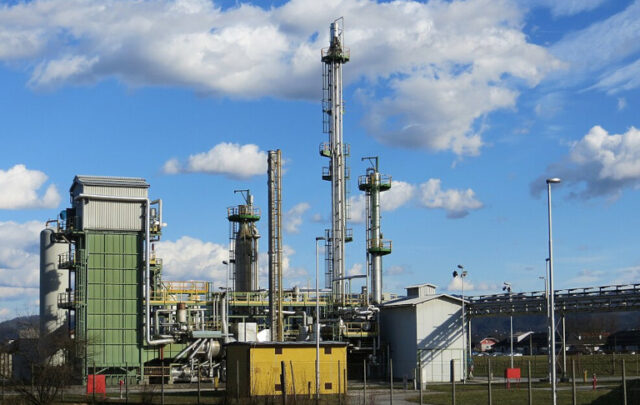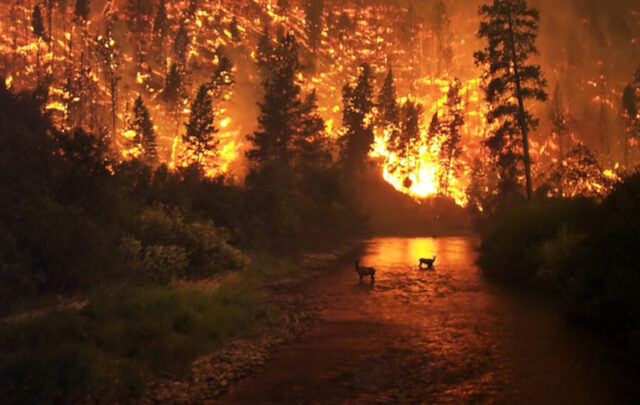Analyses of the discovery and production of global oil fields suggest that world oil production is about to peak, and within the next decade, the supply of conventional oil will be unable to keep up with demand.
‘Peak oil’ describes the scenario when crude oil production for a region, often referring to the entire world, reaches a maximum, from which it inevitably declines.
In the 1950s a prominent geophysicist, M King Hubbert, observed that oil production in the US was following the path of a bell-shaped curve. Production would have a ‘peak’ and following that peak, oil production would decline.
An in-depth report of the situation has been written by Colin J. Campbell and Jean H. Laherrère, who are currently associated with Petroconsultants in Geneva. Both Campbell and Laherrère have spent most of their careers exploring for oil, studying reserve figures and estimating the amount of oil left to discover, first while employed at major oil companies and later as independent consultants.
In their extensive report, ‘The end of cheap oil’ (Scientific American, March 1998), they predict that the decline of the global oil supply will begin before 2010. They have used several different techniques to estimate the current reserves of conventional oil and the amount still left to be discovered.
From an economic perspective, they say, what matters is when production begins to taper off. Beyond that point, prices will rise unless demand declines commensurately. Some of their findings and comments are related in this EyeforEnergy feature.
A distorted picture
While some oil industry reports suggest that crude oil could remain plentiful and cheap for at least 43 more years, Campbell and Laherrère believe that this appraisal makes three critical errors. “First, it relies on distorted estimates of reserves,” they claim. “A second mistake is to pretend that production will remain constant. Third and most important, conventional wisdom erroneously assumes that the last bucket of oil can be pumped from the ground just as quickly as the barrels of oil gushing from wells today. In fact, the rate at which any well—or any country—can produce oil always rises to a maximum and then, when about half the oil is gone, begins falling gradually back to zero.”
More accurate findings and statistics
The relevant statistics are far more complicated than they at first appear, Campbell and Laherrère explain. They describe three vital issues that need to be considered to project future oil production:
- The tally of how much oil has been extracted to date, a figure known as cumulative production.
- An estimate of reserves, the amount that companies can pump out of known oil fields before having to abandon them.
- An educated guess at the quantity of conventional oil that remains to be discovered and exploited.
These factors together add up to ultimate recovery, the total number of barrels that will have been extracted when production ceases many decades from now.
Despite some errors and inconsistencies, most experts apparently agree that the industry had removed just over 800 Gbo from the earth at the end of 1997.
Getting good estimates of reserves is far more difficult however, and often contain systematic errors. For example, companies and countries are often deliberately vague about the likelihood of the reserves they report, preferring instead to publicize whichever figure best suits them, as exaggerated estimates can, for instance, raise the price of an oil company’s stock. Exacerbating this situation is the fact that the definition of reserves varies widely from region to region. Campbell and Laherrère say they were able to work around many of the problems plaguing estimates of conventional reserves by using a large body of statistics maintained by Petroconsultants in Geneva. This information, assembled over 40 years from myriad sources, covers some 18,000 oil fields worldwide. It too, contains some dubious reports, but they made every possible effort to eradicate sporadic errors.
They calculate that the oil industry will be able to recover only about another 1,000 billion barrels of conventional oil. This number, though great, is little more than the 800 billion barrels that have already been extracted.
The two consultants point out that it is important to realize that spending more money on oil exploration will not change this situation. “After the price of crude hit all-time highs in the early 1980s, explorers developed new technology for finding and recovering oil, and they scoured the world for new fields. They found few: the discovery rate continued its decline uninterrupted. They contend that there is only so much crude oil in the world, and the industry has found about 90% of it.”
In calculating how much oil is still left to find, Campbell and Laherrère combined a number of techniques to conclude that about 1,000 billion barrels of conventional oil remain to be produced. They say they:
- Extrapolated published production figures for older oil fields that have begun to decline.
- Plotted the amount of oil discovered so far in some regions against the cumulative number of exploratory wells drilled there.
- Analyzed the distribution of oil-field sizes in the Gulf of Mexico and other provinces.
- Checked their estimates by matching their projections for oil production in large areas.
Radical increases in oil prices forecast
The world could thus see radical increases in oil prices. “That alone might be sufficient to curb demand, flattening production for perhaps 10 years,” the consultants point out. “But by 2010 or so, many Middle Eastern nations will themselves be past the midpoint. World production will then have to fall.”
On a more encouraging note however, they say that with sufficient preparation the transition to the post-oil economy need not be traumatic. “If advanced methods of producing liquid fuels from natural gas can be made profitable and scaled up quickly, gas could become the next source of transportation fuel. Safer nuclear power, cheaper renewable energy, and oil conservation programs could all help postpone the inevitable decline of conventional oil.” They urge countries to begin planning and investing now, and say that advice recently given by a panel of energy experts appointed by President Bill Clinton to increase funding for energy research by $1 billion over the next five years is a step in the right direction, one that must be followed by giant leaps from the private sector.
In conclusion, they stress that while the world is not running out of oil – at least not yet, what society does face, and soon, is the end of the abundant and cheap oil on which all industrial nations depend.
This article provided courtesy of EyeForEnergy





